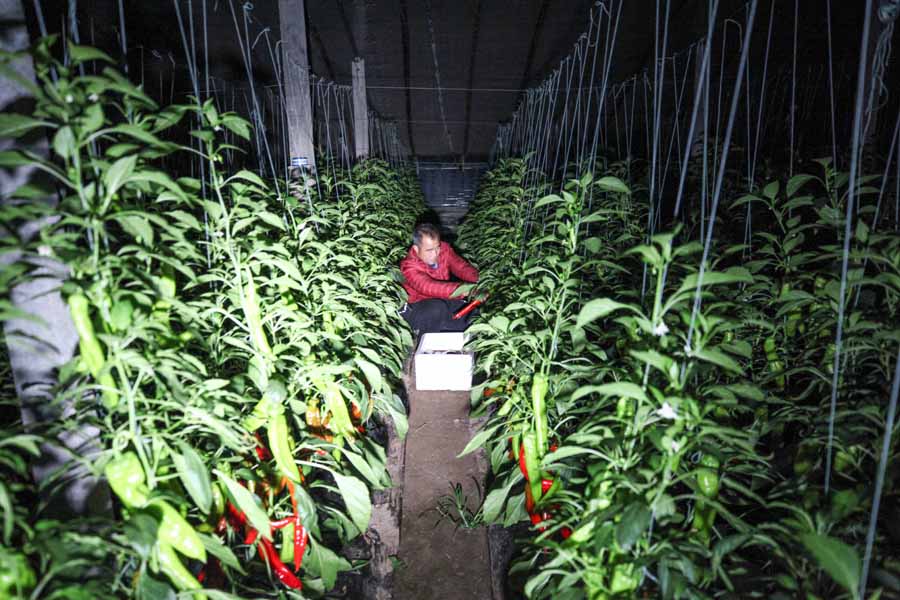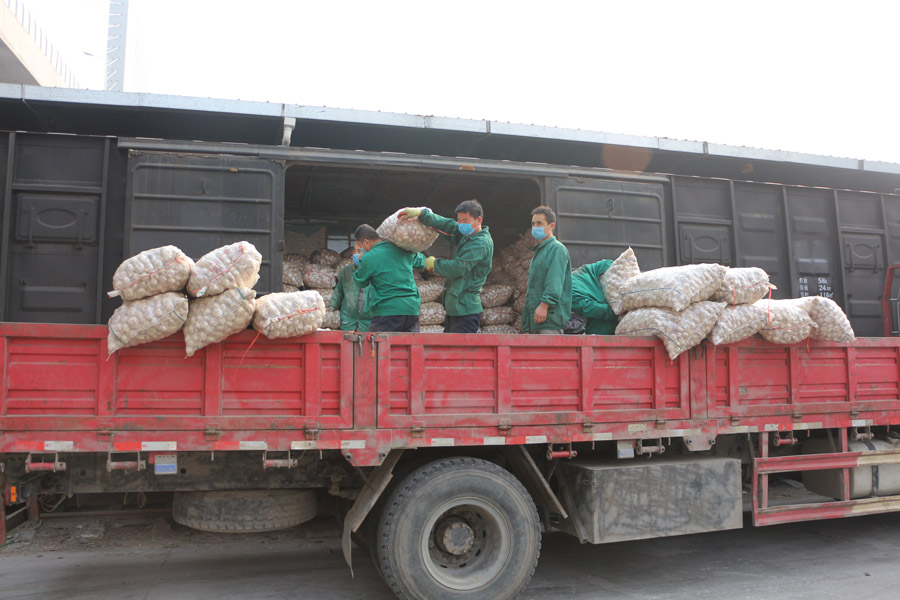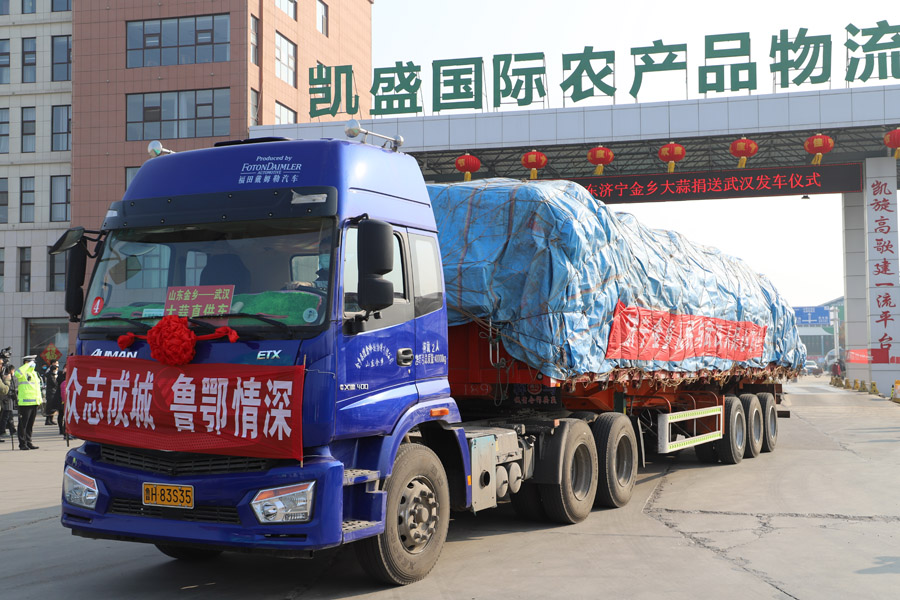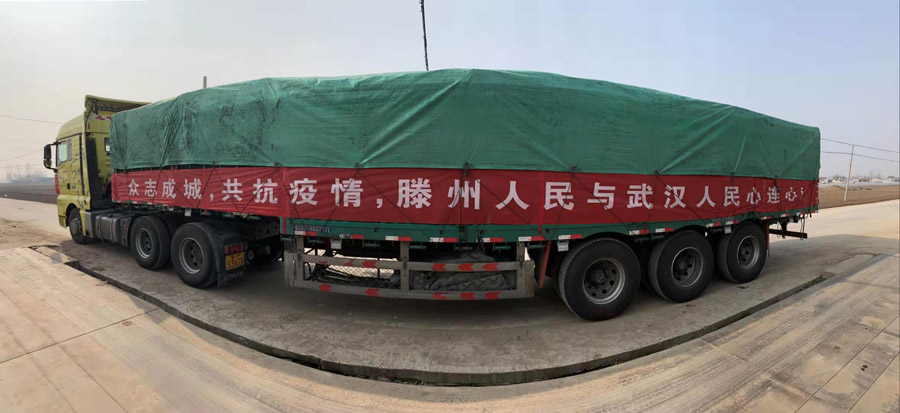Shandong contributes to Wuhan's need for fresh vegetables


A special train loaded with 275 tons of selected agricultural products produced in Heze, East China's Shandong province, set off from the city's railway station on Tuesday at noon, headed to Wuhan in Central China's Hubei province to augment the city's supplies of daily necessities while fight against the novel coronavirus.
The agricultural products donated to Wuhan consist of 90 tons of Chinese yams, 90 tons of garlic, 60 tons of eggs and 35 tons of Chinese cabbage.
As major production bases of agricultural products in China, cities in Shandong have been donating agricultural products, mainly a variety of vegetables, to Wuhan since the outbreak began.

Shouguang in Weifang city, known for its vegetable planting industry, donated 350 tons of high-quality vegetables to Wuhan on Jan 28. The city is supporting Wuhan with a daily supply of 600 tons of high-quality and affordable vegetables as needed.
Shouguang has activated emergency plans to promote the supplies of fresh vegetables to cater for vegetable demands across Shandong, as well as Beijing and Shanghai, according to Shouguang's information office.
Lanling county in Linyi and Jinxiang county in Jining, two places famous for quality garlic, donated 500 tons of garlic to Wuhan last week.
Tengzhou in Zaozhuang donated 66 tons of potatoes to Wuhan on Saturday.

"As a place famous for growing potatoes, we will spare no efforts to support Wuhan with quality potatoes," said Shan Jinfeng, head of the Commerce and Investment Promotion Bureau of Tengzhou.
Supplies of daily necessities matter to people's basic needs and have a great impact in preventing and controlling the epidemic, said Lian Weiliang, deputy head of the National Development and Reform Commission, at a press conference in Beijing on Monday.

With concerted efforts, the supply of daily necessities in Wuhan and the whole of Hubei province, as well as other places in China, has been secured, Lian said.
Some problems, such as fewer varieties of leafy vegetables and delayed replenishment due to logistics, still exist and efforts are underway to solve these shortcomings, Lian said.
- HK bets on integrated hub to enhance TCM profile
- China widens net in battle against graft
- New US dietary guidelines trigger widespread concern
- China eyes space leap with record satellite filings
- Team formed to investigate the loss of 29 cultural relics
- Investigation into school uniforms confirms safety of waterproof layer





































